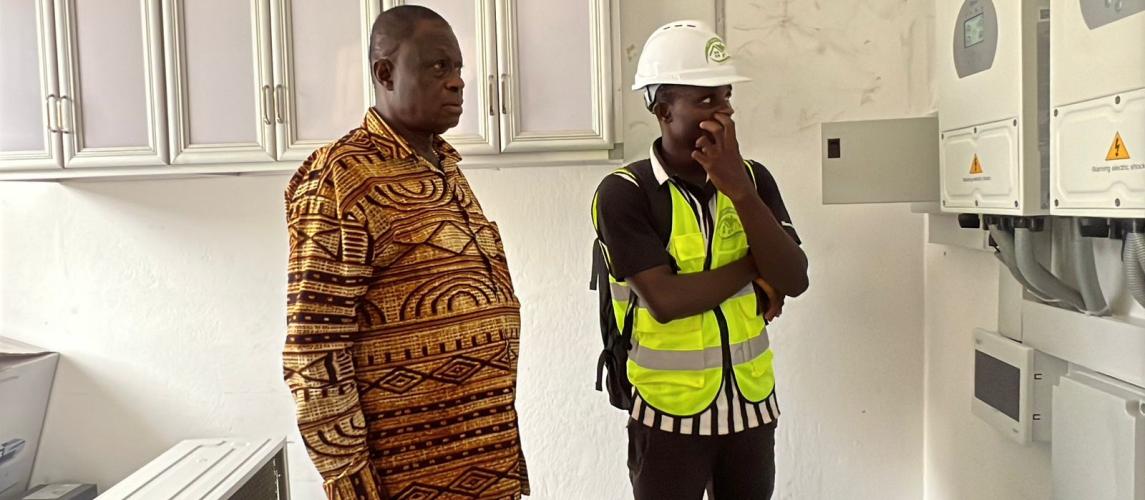
Seeds4Liberia and AfricaRice Solarize Two Key Laboratories at CARI to Strengthen Agricultural Innovation and Genetic Research in Liberia
SUAKOKO, Bong County – In a landmark achievement for agricultural research in Liberia, the Central Agricultural Research Institute (CARI) has successfully solarized two of its core laboratories, thanks to the collaborative support of the Seeds4Liberia project and AfricaRice.
Dr. Arthur Bob Karnuah, Director General of CARI, announced the milestone, emphasizing its significance in advancing scientific research and ensuring energy sustainability.
“I am pleased to inform you that two of our laboratories, Biotechnology and Molecular Biology, have finally been solarized,” Dr. Karnuah stated. “A constant and reliable electricity supply is essential for conducting molecular genetic analysis and tissue culture work. These processes are highly sensitive and require uninterrupted power to yield accurate and meaningful results.”
For years, inconsistent electricity in the region has been a major obstacle, frequently disrupting research operations, delaying critical experiments, and undermining the pace of agricultural innovation. This has affected efforts to address national food security challenges, preserve plant genetic resources, and improve crop productivity.
The new solar power system includes 20 solar panels and five high-capacity batteries, providing an output of approximately 17,000 kilowatt-hours—enough to operate all laboratory equipment without reliance on an unstable national power grid. This renewable energy solution ensures that research activities continue seamlessly, day and night.
The Biotechnology Laboratory—part of the Genetic Resources Unit under CARI’s Biotechnology Program—focuses on genetic analysis and plant tissue culture, supporting plant breeding, genetic diversity preservation, and crop improvement. The Molecular Biology Laboratory, which operates under the Crop Program, is dedicated to the analysis of biological and molecular properties in plants, aiding in the understanding of plant behavior at the DNA and cellular levels.
By equipping these labs with uninterrupted, eco-friendly power, Seeds4Liberia and AfricaRice are significantly enhancing the capacity of Liberia’s premier agricultural research institute to drive data-driven, sustainable solutions to food production challenges.
“This intervention aligns with CARI’s broader vision to modernize Liberia’s agricultural research systems and promote resilient, science-based farming practices,” said Dr. Karnuah. “It also allows us to preserve vital genetic resources and support ongoing research toward crop varieties that are more nutritious, climate-resilient, and high-yielding.”
Under the leadership of Dr. Karnuah, CARI continues to play a pivotal role in shaping the future of Liberia’s agriculture sector. The solarization of these laboratories marks a significant step toward establishing a climate-smart research infrastructure that not only benefits farmers today but also safeguards the agricultural potential of future generations.
CARI has the statutory mandate to conduct agricultural research, develop improved technologies, conserve genetic resources, and provide scientific and technical support to farmers, policymakers, and stakeholders across Liberia’s agricultural value chain.
